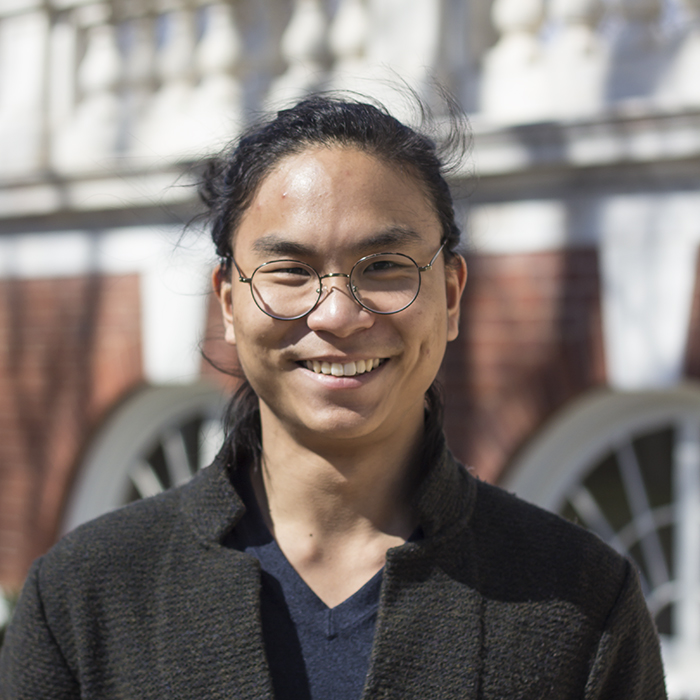Exploration of science behind coffee spills earns Echols Scholar international award
 It turns out, Jiwon Jesse Han explains, that there’s an actual science to not spilling your coffee as you walk to class with that morning jolt of caffeine in your mug. Inspired by a research problem he encountered while competing in the International Young Physicists’ Tournament, the second-year Echols Scholar was a high-school senior in South Korea when he first began investigating this bane of coffee-splattered office workers everywhere.
It turns out, Jiwon Jesse Han explains, that there’s an actual science to not spilling your coffee as you walk to class with that morning jolt of caffeine in your mug. Inspired by a research problem he encountered while competing in the International Young Physicists’ Tournament, the second-year Echols Scholar was a high-school senior in South Korea when he first began investigating this bane of coffee-splattered office workers everywhere.
His research continued after graduating from high school, and before he arrived at the University of Virginia, an academic journal funded by the Far Eastern Federal University in Vladivostok, Russia published his findings. “A Study on the Coffee Spilling Phenomena in the Low Impulse Regime” grabbed the attention of Annals of Improbable Research, a bi-monthly magazine.
Han’s conclusions on the walking motion of humans, and how its specific frequency coincides with the natural frequency of the coffee in a mug, earned him a 2017 Ig Nobel Prize in Fluid Dynamics from the magazine and Harvard University, which co-sponsors the annual awards for research achievements that make people laugh, then think. The Ig Nobels aim to celebrate the unusual and honor the imaginative in research projects that inspire people’s interest in science, medicine and technology.
In the case of Han’s award-winning paper, it may also inspire more people to use what he calls “the hand-claw posture” to hold their coffee cups from the top as they walk. In order to avoid spills, Han explains, you need to displace the system from the resonance that occurs when the frequency of your gait coincides with the natural frequency of the coffee you are carrying. By holding the cup from the top, the fingers clutching the rim of the cup add another joint motion and change the oscillation of the cup, displacing it from resonance.
(Or you could walk backwards to prevent coffee spillage, Han says, but that opens you up to all sorts of other challenges.)
The applications of Han’s research extend beyond the realm of physics, with practical applications for many industries, including large-scale oil tankers. In an interview last fall with The Cavalier Daily, Han explained how the oscillations of the ocean are similar to those of our walking motions.
“Unfortunately, sometimes that frequency also causes the ship to resonate,” he told The Cavalier Daily. “The liquid inside the oil also resonates. We spill coffee, but when the ship spills oil, it’s a completely different story. However, now we realize that we can dissect the oil container into small compartments, which displace the system from resonance.”
When it came time for Han to select a college, his decision came down to Oxford University and the University of Virginia.
“Ultimately, I was drawn to the opportunities that the Echols Scholarship offers,” Han says. “Academic freedom, curricular liberation, and an inspiring community to call home. "
